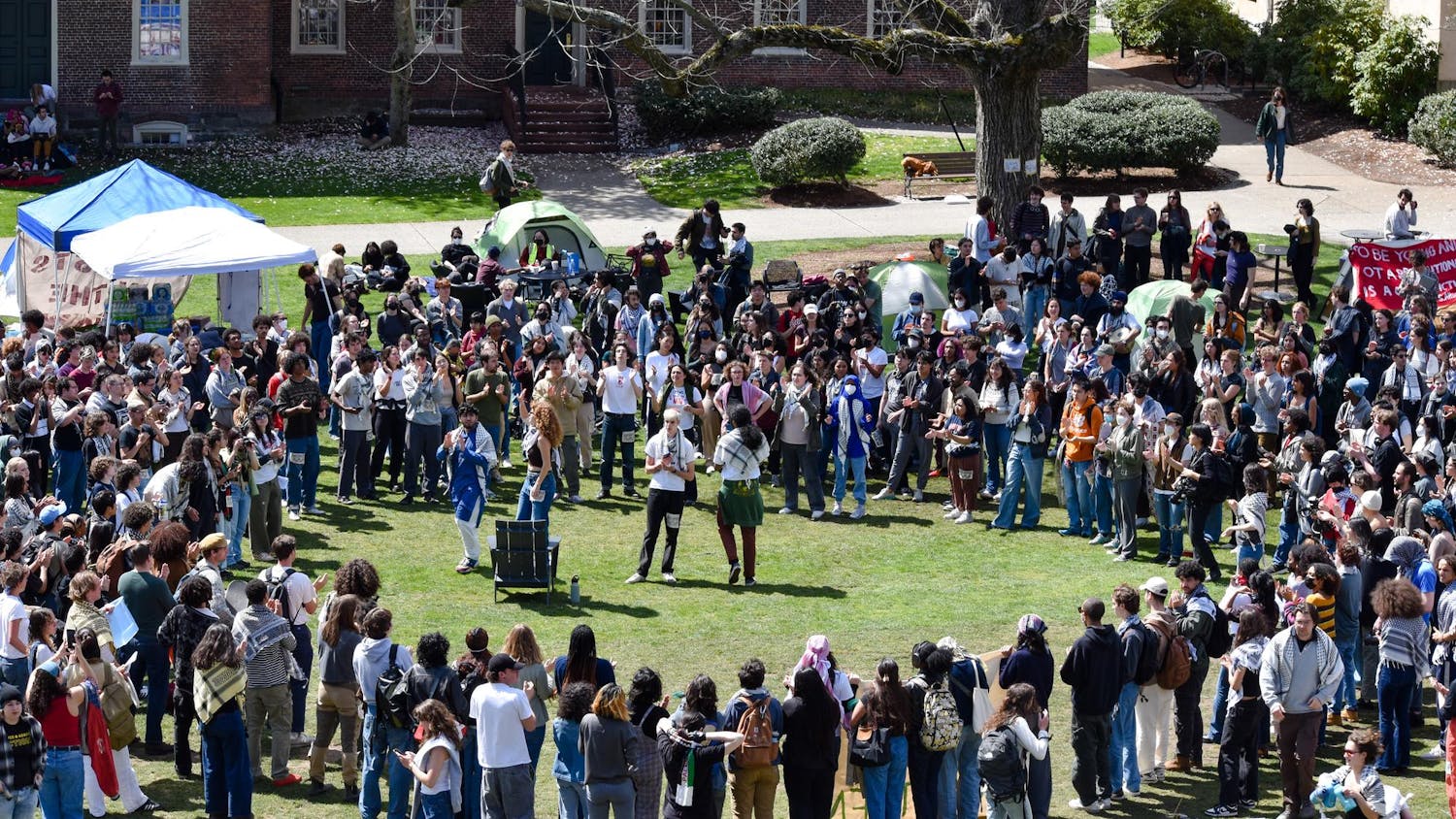Prior to matriculating at Brown, Hugo Lucitante ’19 was a protagonist in the class of 2018’s First Readings assignment — the 2014 documentary “Oil and Water.”
“Oil and Water” told the stories of Lucitante and David Poritz ’12, who founded Equitable Origin, a system that ensures “energy development is conducted under the highest social and environmental standards,” according to its website. In a journey documented by the film, Poritz observed the exploitation of Cofán territory in Northern Ecuador by large companies that extracted oil and left the land in shambles.
After the film came to College Hill, so did Lucitante, who has since co-founded the Cofán Heritage Project in an effort to preserve the culture and history of the Cofán tribe of which he is a member.
Fearing for its extinction, Lucitante’s community sent him to the United States when he was 10 years old. His tribe hoped the opportunities for education he would find in America would allow him to lead the tribe in future years, said Lucitante, who is now 28.
The Cofán Heritage Project — co-founded by Professor of Latin American History James Green — aims to gather documentation and raise awareness of the Cofán people’s struggle for survival, Lucitante said. The tribe has been immensely affected by colonial conquests and land exploitation, he added.
Green works closely with Lucitante, serving as an adviser and aiding in the collection of historical documentation that will eventually be made available on an online platform with translations in English, Cofán and Spanish.
Lucitante is a “very sincere, open, honest, humble person,” Green said.
One of the project’s first events will be a screening of Oil and Water today at 7:30 p.m. at the Watson Institute for International and Public Affairs. Lucitante and Green also hope to fundraise to provide tablets for Cofán students in Ecuador, hold a clothing drive and produce a student-made documentary featuring Lucitante to detail his continued efforts, Green said.
“I have always been fascinated about the ways that they have managed to survive the onslaught of colonization, diseases and outsiders’ environmental destruction of their lands,” Green said. “My respect for the Cofán comes from my respect for the peoples of Latin America but also in my admiration for (Lucitante’s) desire to save his people and their culture from extinction.”
Lucitante serves as a bridge between the Western world and his Cofán tribe, Green said.
“It’s a lot of responsibility, but ultimately, I take advantage of it,” Lucitante said. “I realized that I need to become an expert on my own people.”
Lucitante is the “first indigenous person from the Amazon River basin of South America whose first language is indigenous who has entered an Ivy League university,” Green wrote in an email to The Herald.
“It’s hard,” he said of being at Brown, adding, “I’ve never had to read so much in my life, but it’s a reason to continue. It’s a drive.”
“Being a young parent changed my outlook on life and what I want her to have,” he said, adding that his two-year-old daughter is already picking up the Cofán language.
Lucitante noted the recognition he receives from sophomores on campus. “I get funny looks. They look at me like: ‘I’ve seen you somewhere.’ I like the fact that I don’t need to do too much explaining, rather just update on what I’m working on. The fact that I’m here at Brown … it’s incredible to me,” Lucitante said.
After watching the documentary, many members of the class of 2018 were left with unanswered questions. This led one student, Adam Walden ’18, to found the Cofán-Brown Student Alliance.
“Some were moved, and they wanted to do something about it, so we had a meeting and had an overwhelming amount of support,” Lucitante said.
Walden first met Lucitante when he recognized him in a shared class, HIST 0233: “History of Colonial Latin America.” Inspired by Lucitante, Walden said he attended a meeting of the Cofán Heritage Project.
Lucitante “had everyone in the room have an open talk about where they thought they could contribute, … and (he) listened quietly. He sat back and listened to what people had to say and that really left an impact on me,” Walden said.
By the end of the meeting, Walden was motivated to act. “Thanks to (Lucitante’s) leadership style I felt confident embarking on this process,” he added.
To anyone who wants to help, Walden said, “No contribution is too small. … No amount of energy spent on this project is worthless.”
“All indigenous people face some kind of discrimination. They’re marginalized,” said Paja Faudree, associate professor of anthropology and a faculty coordinator for the Cofán Heritage Project. Lucitante’s work on the Cofán Heritage Project is completed in a “collaborative, collective way (that) requires (him) to have a lot of humility, … requires (him) to be a servant to (his) people,” she said.
“People have invested a lot in him and made sacrifices to help, and that alone I think drives him a lot — to know so many people believe in him,” Faudree said.
The Cofán Heritage Project is in early stages with a small group of faculty members working on it.
“It’s really important to have people committed to the project. … It’s a small number but really strong support from really crucial people,” Faudree said.
Lucitante noted the importance that he, as the leader of the group representing the Cofán tribe, is a member of the tribe.
Often, outsiders provide the tribe with recommendations, but “preserving Cofán culture really needs to be driven by Cofán people,” Faudree said.
Lucitante’s goal for his time at Brown is “to set a good example for the other Amazonian students.”
Of his participation in the documentary, Lucitante said the experience was both exciting and also “a challenge because I had to do a lot of translating.” The Cofáns also wanted to participate because they realize the importance of spreading their story, he added.
For members of the class of 2018, discussing “Oil and Water” provided “a little bit of break with tradition,” as the documentary replaced the usual book format of the First Readings assignment, Faudree said. The change “speaks to the kind of experiences people can have at Brown.”
“When you come to Brown, you don’t know where that experience is gonna take you,” she added.




